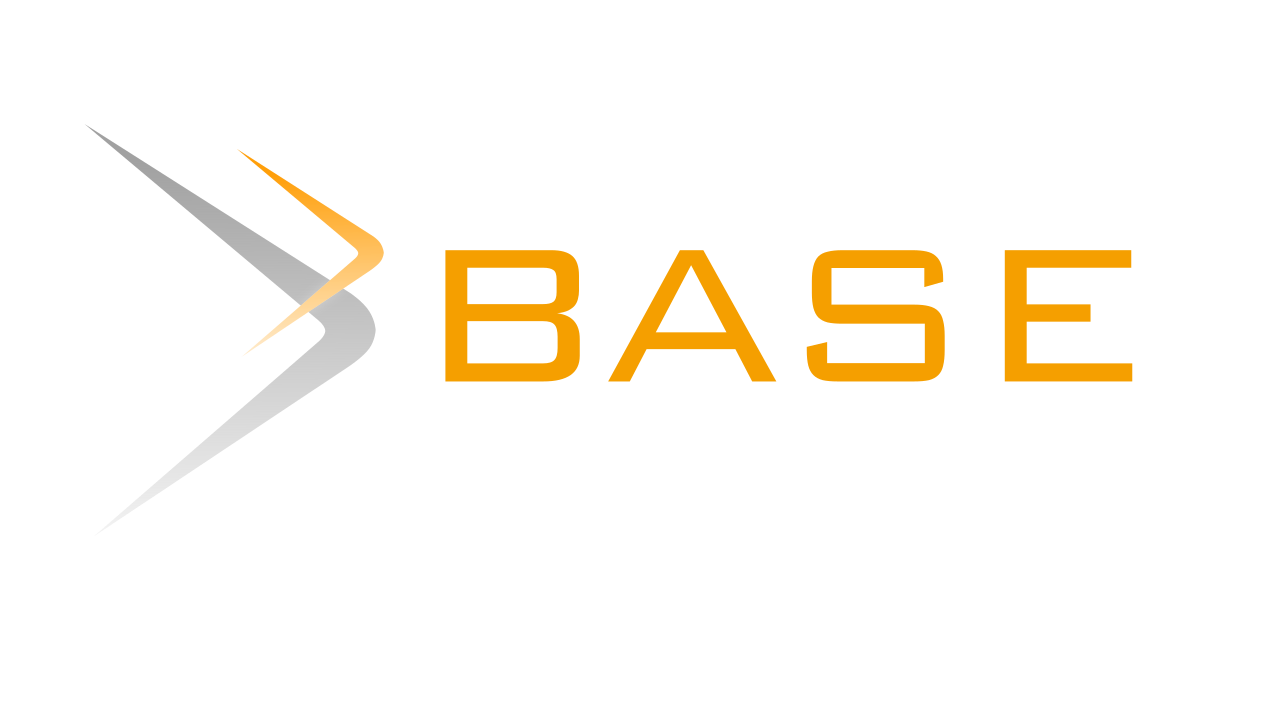Factors Influencing Tax Aggressiveness in Manufacturing Companies in Indonesia: An Analysis of Corporate Social Responsibility, Leverage, and the Moderating Role of Good Corporate Governance
DOI:
https://doi.org/10.32486/aksi.v10i2.898Keywords:
Tax aggressiveness, Corporate Social Responsibility, leverage, Good Corporate Governance, manufacturing companies, IndonesiaAbstract
This research analyzes the factors influencing tax aggressiveness in manufacturing companies in Indonesia, focusing on Corporate Social Responsibility (CSR), leverage, and the moderating role of Good Corporate Governance (GCG). Tax aggressiveness refers to the efforts of companies to reduce their tax obligations, both legally and illegally. Data show that Indonesia's tax ratio has declined, reflecting the negative impact of tax aggressiveness on state revenue. This study employs a quantitative approach using panel data analysis of companies listed on the Indonesia Stock Exchange from 2020 to 2022. The findings indicate that CSR has a positive but not significant effect on tax aggressiveness. Leverage has a positive and significant effect, while liquidity also shows a positive impact on tax aggressiveness. On the other hand, independent commissioners moderated by CSR exhibit a negative but not significant influence. This study provides important insights for companies and regulators. Companies need to manage tax strategies ethically, and regulators should enhance oversight of tax aggressiveness practices. This research is expected to provide an empirical basis for better policymaking and encourage companies to use CSR as a tool to enhance tax compliance rather than disguise tax aggressiveness.
References
Andariesta, A. V., & Suryarini, T. (2023). Faktor-Faktor yang Mempengaruhi Agresivitas Pajak dengan Dimoderasi oleh Ukuran Perusahaan. Owner: Riset & Jurnal Akuntansi, 7(1), 619–631. https://doi.org/10.33395/owner.v7i1.1213
Anggraeni, D. P., & Hastuti, S. (2020). Does Managerial Ownership Moderate the Relationship between Corporate Social Responsibility Disclosure and Tax Aggressiveness? Journal of Accounting and Strategic Finance, 3(2), 229–242. https://doi.org/10.33005/jasf.v3i2.137
Angrist, J. D., & Krueger, A. B. (2001). Instrumental Variables and the Search for Identification: From Supply and Demand to Natural Experiments. The Journal of Economic Perspectives, 15(4), 69. https://doi.org/10.1257/jep.15.4.69
Ann, S., & Manurung, A. H. (2019). The Influence of Liquidity, Profitability, Intensity Inventory, Related Party Debt, And Company Size To Aggressive Tax Rate. Archives of Business Research, 7(3). https://doi.org/10.14738/abr.73.6319
Azizah, N., & Kusmuriyanto. (2016). The Effect of Related Party Transaction, Leverage, Commissioners and Directors Compensation on Tax Aggressiveness. Accounting Analysis Journal, 5(4), 307–316. https://doi.org/10.15294/aaj.v5i4.10726
Cahyadi, H., Surya, C., Wijaya, H., & Salim, S. (2020). Pengaruh Likuiditas, Leverage, Intensitas Modal, dan Ukuran Perusahaan Terhadap Agresivitas Pajak. STATERA: Jurnal Akuntansi Dan Keuangan, 2(1), 9–16. https://doi.org/10.33510/statera.2020.2.1.9-16
Canova, F., & Ciccarelli, M. (2013). Panel Vector Autoregressive Models: A Survey. In Advances in econometrics (p. 205). https://doi.org/10.1108/s0731-9053(2013)0000031006
Dewi, S. L., & Oktaviani, R. M. (2021). Pengaruh Leverage, Capital Intensity, Komisaris Independen Dan Kepemilikan Institusional Terhadap Tax Avoidance. Akurasi: Jurnal Studi Akuntansi Dan Keuangan, 4(2), 179–194. https://doi.org/10.29303/akurasi.v4i2.122
Dewi, S. P. & Cynthia. (2018). Aggressiveness Tax In Indonesia. Jurnal Akuntansi, 22(2), 239–254. https://doi.org/10.24912/ja.v22i2.350
Dianawati, & Agustina, L. (2020). The Effect of Profitability and Leverage on Tax Avoidance With Company Size As a Moderating Variable. Accounting Analysis Journal, 9 (3), 166–172. https://doi.org/10.15294/aaj.v9i3.41626
Eksandy, A. (2017). The Effect of Independent Commissioners, Audit Committees, and Audit Quality on Tax Avoidance. COMPETITIVE Journal of Accounting and Finance, 1(1). http://dx.doi.org/10.31000/competitive.v1i1.96
Fairchild, A. J., & McQuillin, S. D. (2009). Evaluating mediation and moderation effects in school psychology: A presentation of methods and review of current practice [Review of Evaluating mediation and moderation effects in school psychology: A presentation of methods and review of current practice]. Journal of School Psychology, 48(1), 53. Elsevier BV. https://doi.org/10.1016/j.jsp.2009.09.001
Fama, E. F., & Jensen, M. C. (1983). Separation Of Ownership And Control. Journal of Law and Economics, 26(2), 301–325. https://dx.doi.org/10.2139/ssrn.94034
Firdaus, V. A., & Poerwati, R. T. (2022). Pengaruh Intensitas Modal, Pertumbuhan Penjualan dan Kompensasi Eksekutif terhadap Penghindaran Pajak (Studi pada Perusahaan Manufaktur yang Terdaftar di Bursa Efek Indonesia (BEI) Periode 2018-2020). Jurnal Ilmiah Mahasiswa Akuntansi Universitas Pendidikan Ganesha, 13, 180–189. https://doi.org/10.23887/jimat.v13i01.38009
Ghozali, I. (2021). Aplikasi Analisis Multivariate Dengan Program IBM SPSS 26 Edisi 10. Badan Penerbit Universitas Diponegoro.
Grill, C. (2017). Longitudinal Data Analysis, Panel Data Analysis. In The International Encyclopedia of Communication Research Methods (p. 1). https://doi.org/10.1002/9781118901731.iecrm0134
Gunawan, J. (2017). Pengaruh Corporate Social Responsibility dan Corporate Governance Terhadap Agresivitas Pajak. Jurnal Akuntansi, 21(3), 425. https://doi.org/10.24912/ja.v21i3.246
Halaby, C. N. (2004). Panel Models in Sociological Research: Theory into Practice. Annual Review of Sociology, 30(1), 507. https://doi.org/10.1146/annurev.soc.30.012703.110629
Handoyo, S., Wicaksono, A. P., & Darmesti, A. (2022). Does Corporate Governance Support Tax Avoidance Practice in Indonesia?. International Journal of Innovative Research and Scientific Studies, 5(3), 184–201. https://doi.org/10.53894/ijirss.v5i3.505
Hanum, Z., & Faradila, J. (2023). Pengaruh Corporate Social Responsibility Terhadap Agresivitas Pajak Pada Perusahaan Makanan dan Minuman Yang Terdaftar Di BEI. Owner: Riset & Jurnal Akuntansi, 7(1), 479–487. https://doi.org/10.33395/owner.v7i1.1114
Hariana, D. (2022). Salah Satu Perusahaan yang Melakukan Praktik Penghindaran Pajak (Tax Avoidance) dengan Transfer Pricing. Kompasiana. https://www.kompasiana.com/devie1203/628da44fbb44867a55461ff2/salah-satu-perusahaan-yang-melakukan-praktik-penghindaran-pajak-tax-avoidance-dengan-transfer-pricing
Hendayana, Y., Arief Ramdhany, M., Pranowo, A. S., Abdul Halim Rachmat, R., & Herdiana, E. (2024). Exploring impact of profitability, leverage and capital intensity on avoidance of tax, moderated by size of firm in LQ45 companies. Cogent Business & Management, 11(1). https://doi.org/10.1080/23311975.2024.2371062
Hendrilestari, V. H., Mappadang, A., Iskak, J., & Mappadang, J. L. (2023). Profitabilitas Memoderasi Hubungan Corporate Social Responsibility dan Capital Intensity Terhadap Agresivitas Pajak. Jurnal Inovasi Pendidikan Ekonomi. https://doi.org/10.24036/011248470
Herlinda, A. R., & Rahmawati, M. I. (2021). Pengaruh Profitabilitas, Likuiditas, Leverage dan Ukuran Perusahaan Terhadap Agresivitas Pajak. Ilmu Dan Riset Akuntansi, 10, 18.
Hidayat, A. T., & Fitria, E. F. (2018). Pengaruh Capital Intensity, Inventory Intensity, Profitabilitas dan Leverage Terhadap Agresivitas Pajak. Eksis: Jurnal Riset Ekonomi Dan Bisnis, 13(2), 157 - 168. https://doi.org/10.26533/eksis.v13i2.289
Kurniati, D. (2022). Ada Kabar Terbaru Dari Sri Mulyani Soal Kinerja Pajak Hingga Juli 2022. DDTC News. Retrieved. https://news.ddtc.co.id/ada-kabar-terbaru-dari-sri-mulyani-soal-kinerja-pajak-hingga-juli-2022-41188
Lailiyah, C. Z., Massela, A., Yulianto, A., & Khalid, A. A. (2024). Impact of corporate social responsibility, profitability, leverage, and capital intensity on tax aggressiveness: The moderating role of firm size in Indonesian manufacturing sector. Journal of Accounting, Finance and Auditing Studies, 10(2), 51-64. https://www.um.edu.mt/library/oar/handle/123456789/131983
Lanis, R., & Richardson, G. (2012). Corporate social responsibility and tax aggressiveness: An empirical analysis. Journal of Accounting and Public Policy, 31(1), 86–108. https://doi.org/10.1016/j.jaccpubpol.2011.10.006
Maharani, F. S., & Baroroh, N. (2019). The Effects of Leverage, Executive Characters, and Institutional Ownership to Tax Avoidance With Political Connection as Moderation. Accounting Analysis Journal, 8(2), 81–87. https://doi.org/10.15294/aaj.v8i2.30039
Mariana, C., Subing, H. J. T., & Mulyati, Y. (2021). Does Capital Intensity And Profitability Affect Tax Aggressiveness? Turkish Journal of Computer and Mathematics Education, 12(8), 1050–1056. Retrieved from https://turcomat.org/index.php/turkbilmat/article/view/2988
McManus, P. (2015). Introduction to Regression Models for Panel Data Analysis. https://scholarworks.iu.edu/dspace/bitstream/2022/21957/1/2015-02-13_wim_mcmanus_panel_flyer.pdf
Menkeu. (2021). Menkeu: Pajak Merupakan Tulang Punggung Nasional. Kementrian Keuangan Republik Indonesia. https://www.kemenkeu.go.id/publikasi/berita/menkeu-pajak-merupakan-tulang-punggung-nasional/
Mohanadas, N. D., Abdullah Salim, A. S., & Pheng, L. K. (2019). CSR and Tax Aggressiveness of Malaysian Listed Companies: Evidence from An Emerging Economy. Social Responsibility Journal, 16(5), 597–612. https://doi.org/10.1108/SRJ-01-2019-0021
Moral‐Benito, E. (2010). Determinants of Economic Growth: A Bayesian Panel Data Approach. The Review of Economics and Statistics, 94(2), 566. https://doi.org/10.1162/rest_a_00154
Novianto, R. A. (2021). The Influence Of Liquidity And Profitability On Tax Avoidance (Case Study On Consumption Goods Industry Registered On The Idx 2015-2019). Turkish Journal of Computer and Mathematics Education (TURCOMAT), 12(11), 1358–1370. https://doi.org/10.17762/turcomat.v12i11.6047
Nugroho, R. P., T, S., & Mardiati, E. (2020). The Effect of Financial Distress and Earnings Management on Tax Aggressiveness with Corporate Governance As The Moderating Variable. International Journal of Research in Business and Social Science, 9(7), 167–176. https://doi.org/10.20525/ijrbs.v9i7.965
Pangestu, S. H., & Pratomo, D. (2020). Pengaruh Konservatisme Akuntansi Dan Capital Intensity Terhadap Tax Avoidance Dengan Profitabilitas, Size Dan Leverage Sebagai Variabel Kontrol: Studi Kasus pada Perusahaan Manufaktur Sub Sektor Otomotif yang terdaftar di BEI Periode 2008-2017. JAE (JURNAL AKUNTANSI DAN EKONOMI), 5(3), 26-34. https://doi.org/10.29407/jae.v5i3.14182
Prismanitra, K., & Sukirman. (2021). The Determinants of Tax Avoidance with Good Corporate Governance as A Moderating Variable. Accounting Analysis Journal, 10(2), 101–107. https://doi.org/10.15294/aaj.v10i2.47342
Putra, P. D., Zainal, A., Thohiri, R., & Harahap, K. (2019). Factors Affecting Tax Avoidance in Indonesia and SIngapore Practices: A View from Agency Theory. Labuan Bulletin of International Business &Finance, 17(2), 24–40. https://doi.org/10.51200/lbibf.v17i2.2537
Putri, P. Y. A., Dewi, I. G. A. R. P., & Idawati, P. D. P. (2019). Pengaruh Kualitas Audit dan Leverage pada Agresivitas Pajak pada Perusahaan Manufaktur yang Terdaftar di Bursa Efek Indonesia Tahun 2013-2017. Jurnal KRISNA: Kumpulan Riset Akuntansi, 10(2), 148–160. http://dx.doi.org/10.22225/kr.10.2.911.148-160
Putri, S. P., Adam, M., & Fuadah, L. L. (2018). The Effect of Corporate Governance Mechanism on Tax Aggressiveness With Earnings Management as Intervening Variable. Journal of Accounting Finance and Auditing Studies (JAFAS), 4(4), 11–26. https://doi.org/10.32602/jafas.2018.002
Putri, Y. A., & Yanti, H. B. (2022). The Effect of Corporate Social Responsibility, Management Compensation, Capital Intensity, Financial Distress on Tax Avoidance. Trisakti Economic Journal, 2(2), 1-14. http://dx.doi.org/10.25105/jet.v2i2.14221
Raflis, R., & Ananda, D. R. (2020). Dampak Corporate Governance Dalam Memoderasi Pengaruh Likuiditas, Leverage dan Capital Intensity Pada Agresivitas Pajak Perusahaan Pertambangan. Jurnal Ekonomi Dan Bisnis Dharma Andalas, 22(1), 120–131. https://jurnal.unidha.ac.id/index.php/JEBD/article/view/89
Rahayu, S., & Suryarini, T. (2021). The Effect of CSR Disclosure, Firm Size, Capital Intensity, and Inventory Intensity on Tax Aggressiveness. Accounting Analysis Journal, 10(3), 191–197. https://doi.org/10.15294/aaj.v10i3.51446
Rahayu, S., Firmansyah, A., Perwira, H., Saputro, S. K. A., & Trisnawati, E. (2022). Liquidity, Leverage, Tax Avoidance: The Moderating Role of Firm Size. Riset : Jurnal Aplikasi Ekonomi, Akuntansi Dan Bisnis, 4(1), 39–52. https://doi.org/10.37641/riset.v4i1.135.
Rahma, A. A., Pratiwi, N. ., Mary, H. ., & Indriyenni, I. (2022). Pengaruh Capital Intensity, Karakteristik Perusahaan, Dan CSR Disclosure Terhadap Penghindaran Pajak Pada Perusahaan Manufaktur. Owner : Riset Dan Jurnal Akuntansi, 6(1), 677-689. https://doi.org/10.33395/owner.v6i1.637
Salhi, B., Riguen, R., Kachouri, M., & Jarboui, A. (2019). The mediating role of corporate social responsibility on the relationship between governance and tax avoidance: UK common law versus French civil law. Social Responsibility Journal. 16(8), 1149-1168.
Santoso, Y. I. (2020). Dirjen Pajak Angkat Bicara Soal Kerugian Rp 68,7 triliun Dari Penghindaran Pajak. Nasional Kontan. https://nasional.kontan.co.id/news/dirjen-pajak-angkat-bicara-soal-kerugian-rp-687-triliun-dari-penghindaran-pajak
Sekaran, U., & Bougie, R. (2017). Research Methods for Business: A Skill-Building Approach (7th ed.). Wiley.
Sevirino, L. R., & Tardin, N. (2021). Corporate Social Responsibility As a Determinant of Tax Aggressivity. Revista, 15. https://doi.org/10.1080/02642069.2018.1450871
Shleifer, A., & Vishny, R. W. (1997). A Survey of Corporate Governance. The Journal of Finance, LII(2), 52–90. https://doi.org/10.4324/9780203940136
Sookye, L., & Mohamudally-Boolaky, A. (2019). Effectiveness of Financial Risk Management Framework: An Analysis of the Mauritian Banking Sector. Journal of Financial Risk Management, 8(2), 106. https://doi.org/10.4236/jfrm.2019.82008
Sulistiana, N. A., Riskiamanda, I., & Rahmatika, D. N. (2024). Systematic Literature Review: Pengaruh Profitabilitas dan Leverage terhadap Tax Avoidance (Penghindaran Pajak). Jurnal Pendidikan Tambusai, 8(2), 29197–29206. Retrieved from http://jptam.org/index.php/jptam/article/view/17575
Tuğcu, C. T. (2018). Panel Data Analysis in the Energy-Growth Nexus (EGN). In Elsevier eBooks (p. 255). Elsevier BV. https://doi.org/10.1016/b978-0-12-812746-9.00008-0
Widiatmoko, S., & Mulya, H. (2021). The Effect of Good Corporate Governance, Profitability, Capital Intensity and Company Size on Tax Avoidance. Journal of Social Science, 2(4), 502-511. https://doi.org/10.24198/jaab.v6i2.48932
Wijaya, D., & Saebani, A. (2019). Pengaruh Pengungkapan Corporate Social Responsibility, Leverage, dan Kepemilikan Manajerial Terhadap Agresivitas Pajak. Widyakala Journal, 6(1), 55. https://doi.org/10.36262/widyakala.v6i1.147
Witomo, A., & Zidan Qiam Arrahman, Z. (2024). The Influence of Corporate Governance, Profitability, and Capital Intensity on Tax Avoidance in Manufacturing Companies Listed on the Idx in the Time Frame 2021-2023. Journal of World Science, 3(6), 632–641. https://doi.org/10.58344/jws.v3i6.618
Yogiswari, N. K. K., & Ramantha, I. W. (2017). Pengaruh Likuiditas dan Corporate Social Responsibility pada Agresivitas Pajak dengan Corporate Governace sebagai Variabel Pemoderasi. E-Jurnal Akuntansi Universitas Udayana, 21(1), 730–759. https://udayananetworking.unud.ac.id/professor/publication/2750/pengaruh-likuiditas-dan-corporate-social-responsibility-pada-agresivitas-pajak-dengan-corporate-governace-sebagai-variabel-pemoderasi-8422
Downloads
Published
How to Cite
Issue
Section
License
Copyright (c) 2025 Yudhistira Ardana, Fikri Rizki Utama, Etty Puji Lestari

This work is licensed under a Creative Commons Attribution-ShareAlike 4.0 International License.














